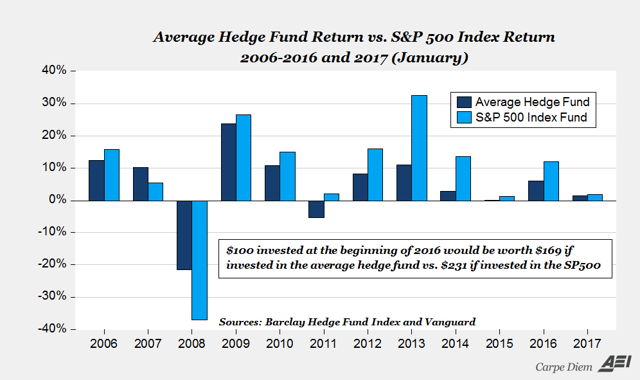The most successful investor in history, Warren Buffet, advocates that those unwilling or unable to intelligently evaluate individual stocks should invest in a low-cost index fund such as those offered by Vanguard. The reason is index funds boast three distinct advantages over their actively managed counterparts. Herewith the benefits of index funds as follows.
They are made up of dozens or hundreds of companies. This diversification reduces company-specific risk. In addition to that, they do not require corporate analysis or an understanding of accounting, financial theory, or portfolio policy. Furthermore, they have almost nonexistent expense ratios, providing a significant competitive edge over actively managed funds and almost completely ensuring superior long-term performance.

An index fund is a mutual fund designed to mirror the performance of one of the major indices (e.g., the Dow Jones Industrial Average, S&P 500, Wilshire 5000, Russell 2000, etc.) nothing like traditional, actively managed mutual funds where portfolio managers evaluate, analyze and acquire individual stocks, index funds are passively managed. On the whole, this means they consist of a preselected group of stocks that rarely, if ever, changes.
An investor that bought an index fund designed to mirror the Dow Jones Industrial Average, for example, would experience price movements almost perfectly in sync with the quoted value of the Dow Jones Industrial Average he hears on the nightly news. Likewise, an investor who built a position in an index fund designed to mimic the S&P 500 is, in essence, acquiring stock in all five hundred of the companies that make up that index.
Index Funds Don’t Require Corporate and Financial Analysis
Index funds are ideal for those who have no idea how to evaluate competitive advantages of various corporations, calculate discounted cash flows or differentiate an income statement from a balance sheet. Because company-specific risk is diversified away thanks to the dozens or hundreds of companies that make up each of the major indices, such analysis is not necessary. While avoiding the thousands of dollars in brokerage commissions that would otherwise result an index fund is a cost effective way to acquire hundreds of stocks.
Index Funds Generally Have the Lowest Mutual Fund Expense Ratios
Actively managed mutual funds must pay portfolio managers, analysts, research subscription fees and the like. Known as the expense ratio is the percentage of a fund’s total expenses including its 12b-1 fees divided by its average net assets. The expense ratio is almost nil compared to the average mutual fund. The reason is that index funds are non-managed (and require none of the aforementioned expenses). This means that less of the investor’s money goes to paying overhead, sales charges, and compensation. The lower costs associated with index funds can result in significantly improved performance, over the long-run.
Consider the following situation. A quick glance at Yahoo Finance reveals the average expense ratio for growth and income style mutual funds is 1.29%. As a result, approximately $1,883 of every $10,000 invested over the course of ten years will go to the fund company in the form of expenses. Evaluate that to the Vanguard 500 fund, designed to mirror the S&P 500 index, which boasts an annual expense ratio of only 0.12%, resulting in ten-year compounded expense of $154 for every $10,000 invested.
In conclusion, by investing in the Vanguard fund, the investor will have $1,724 more working for him. The difference is significant compounded over an investing lifetime.






